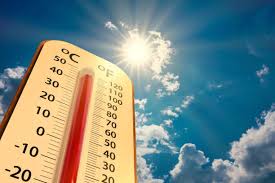Posted on 7/15/2024

Summer a can be a joyful time in Arizona, filled with the smell of mesquite trees, cactus flowers and Torrential rains. But it’s also a season of sweltering heat. The high temperatures in Arizona can push your car’s air conditioning to its absolute limits as you drive to your favorite restaurant or a friends home. Broken air conditioning can ruin your fun, leave you sweating, grumpy and even in the "dog house" with your spouse who has been telling you for months to get the AC system checked. Thankfully, you can still take steps to keep your air conditioning running and the good times and relationships going. Regular AC Maintenance: Air conditioning systems need regular maintenance to operate at peak performance like any other car component. It’s never too late for One Stop Automotive to perform an ac system check. Hopefully catching potential problems early and preventing expensive repairs and terrible hot road trips. Servicing Your HVAC System: Unlike regu ... read more
Posted on 6/18/2024
.jpg)
Its Arizona Car-B-Que Season As Arizona residents, we all know the horrors of jumping into a hot car during summer months, while wearing shorts and putting on those red hot sunglasses. First, after you have sought medical attention for the seven layers of skin you have lost from the back of your legs and possible permanent branding to your face from those sun glasses, we can look into summer vehicle maintenance for your sun baked car. During the summers in Arizona when temperatures regularly reach around 100-120 degrees, the temperatures inside of your vehicle can easily reach around 150 degrees. Some people have even claimed the temperature in their vehicle MUST be around 1 million degrees, but most likely those are exaggerations. But we use these examples to make it easier to understand the affects of our severe weather on vehicles. Summer heat and sun cause some serious damage, the worst to plastic and rubber components, ie... tires, belts, hoses ... read more
Posted on 10/16/2023
Your vehicle's cooling system serves a few very important functions. It maintains the engines optimal operating temperature which is where it works most efficiently, and removes any excess heat from the engine when its under a load or outside temperatures are high. While your vehicle is in use, the coolant exits from the bottom of the radiator after it's cooled, where its then drawn into the water pump, to cycle it back through the engine where it absorbs the heat and travels back to the top of the radiator where the cycle continues. A vehicles cooling system is basically made up of the engine, radiator, the water pump, cooling fan(s), circulatory hoses, and a thermostat and coolant temperature sensor. During the engine combustion process (intake,compression,power,exhaust) the fuel energy is converted into heat, which is transferred throughout the cylinder head and block to the coolant, and cycled through the cooling system via the water pump. The hose carr ... read more
Posted on 12/16/2022

Doing a vehicle coolant system exchange? It is never a good time to break down on the side of the road in the middle of winter with your family in the vehicle. One of the big causes of breakdowns are caused by overheating issues. Vehicle cooling system perform two things. Cooling and lubrication. Cooling systems remove heat from the engine using the properties of heat transfer. Modern cars use liquid cooling systems. These use a fluid call antifreeze circulated within the engine, that is then pumped out of the engine into a radiator, where the heat is released. Over time the coolant in your vehicle breaks down. The components of the cooling system included a water pump, the thermostat, the radiator, cooling fans, the heater core, the pressure cap, the overflow tank and the hoses. To prolong the life of the coolant system and minimize vehicle breakdowns it is recommended to change the coolant every 30,000 miles and replace the hoses ever ... read more